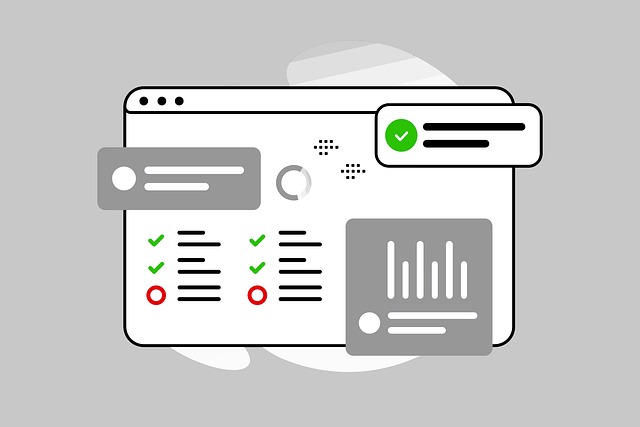Probate proceedings in Oregon facilitate the legal distribution of a deceased person's assets based on their will or state laws. Key steps include appointing a personal representative (Executor), identifying and valuing assets, notifying beneficiaries and creditors, paying debts, and distributing assets. The process prioritizes fairness, transparency, and adherence to legal guidelines. Efficient planning involves regular document updates, professional consultation for complex cases, and clear communication among parties.
“Unraveling Oregon’s Probate Process for Seamless Estate Planning”
Oregon’s probate process is a meticulous journey, crucial for ensuring your estate’s orderly transition. This comprehensive guide navigates the key steps involved in initiating probate proceedings, from appointing an executor to identifying and valuing assets. We delve into the legal distribution of estates, addressing beneficiary rights, and offer insights on common challenges, empowering you with strategies for effective planning within Oregon’s probate framework.
- Understanding Oregon Probate Process: An Overview
- Initiating Probate Proceedings in Oregon: Required Steps
- Appointing an Executor: Crucial Role and Selection Criteria
- Identifying and Valuing Assets: A Comprehensive Guide
- Distribution of Estate: Legal Considerations and Beneficiary Rights
- Common Challenges in Oregon Probate Cases and Effective Strategies
Understanding Oregon Probate Process: An Overview

Understanding Oregon Probate Process: An Overview
In Oregon, probate proceedings are a legal process designed to distribute a deceased person’s assets according to their will or state laws if there is no valid will. This intricate process involves several key steps, including the appointment of a personal representative (often called an executor), identification and valuation of assets, notification to beneficiaries and creditors, and the eventual distribution of assets. The personal representative serves as a fiduciary duty holder, responsible for managing and distributing the estate responsibly and in accordance with legal guidelines.
Oregon probate laws aim to ensure fairness and transparency throughout these proceedings. They establish clear timelines, require detailed record-keeping, and mandate open communication between the personal representative and beneficiaries. This process is crucial for effective estate planning as it ensures that a deceased individual’s wishes are respected, while also providing a structured framework for managing their assets in a legally sound manner.
Initiating Probate Proceedings in Oregon: Required Steps

Initiating probate proceedings in Oregon involves several key steps, designed to ensure a structured and legal transfer of assets upon someone’s death. The first step is to petition the court for probate, which includes filing a formal request with the appropriate county court. This petition should include essential information such as the deceased person’s name, their date of death, and details about the size and nature of their estate.
Once the petition is filed, the court will appoint a personal representative, often a designated heir or trusted individual, to oversee the probate process. This step is crucial for managing the distribution of assets according to the deceased’s wishes, as outlined in their will or, if there is none, under Oregon’s default inheritance laws. The personal representative is responsible for gathering and inventorying the estate’s assets, paying any outstanding debts, and ensuring compliance with all legal requirements throughout the probate proceedings in Oregon.
Appointing an Executor: Crucial Role and Selection Criteria

In probate proceedings Oregon, appointing an Executor is a crucial step in effective estate planning. The Executor plays a vital role in ensuring that the wishes outlined in your will are carried out smoothly. This responsible individual manages and distributes your assets according to legal guidelines and your specific instructions. When selecting an Executor, consider someone with strong organizational skills, a keen understanding of financial matters, and the time and commitment to handle these delicate tasks.
It’s wise to choose someone trustworthy who is also familiar with probate laws in Oregon. This could be a close family member or friend, but it can also be a professional, such as an attorney or trust officer, depending on your preferences and the size and complexity of your estate. Ensure that your chosen Executor is willing and able to take on this significant responsibility.
Identifying and Valuing Assets: A Comprehensive Guide

Identifying and valuing assets is a critical step in the probate process for Oregon residents. It involves compiling a comprehensive list of all property, both real and personal, owned by the deceased at the time of their passing. This includes bank accounts, investments, real estate holdings, vehicles, and valuable items like art or collectibles. Each asset must be accurately documented, including its current market value, to ensure fair distribution according to the will or state laws governing intestate succession.
Professional assistance can be invaluable during this stage. Estate planning attorneys in Oregon can guide individuals through the process, helping them uncover all assets and ensuring proper valuation. This is particularly important for complex estates with diverse holdings, as incorrect valuations could lead to disputes among beneficiaries later on. Effective asset identification and valuation lay the groundwork for smooth probate proceedings, ensuring the deceased’s wishes are respected.
Distribution of Estate: Legal Considerations and Beneficiary Rights

The distribution of an estate is a crucial aspect of probate proceedings in Oregon, with careful consideration required to ensure legal compliance and respect for beneficiary rights. During this phase, the personal representative (often a named executor) manages the distribution of assets as per the terms of the will or, if there is no valid will, according to state laws regarding intestate succession. Beneficiaries have specific rights during this process, including the right to notice of probate and a fair share of the estate.
Oregon’s probate laws outline the procedures for distributing personal property, real estate, and other assets. These laws aim to protect the interests of all involved, ensuring that beneficiaries receive what is rightfully theirs. The distribution process involves several steps, from identifying and valuing assets to paying outstanding debts and taxes, and finally, transferring the remaining assets to the named beneficiaries. Each state has its own set of rules and regulations, so understanding the Oregon probate proceedings is essential for effective estate planning and ensuring a smooth transition of assets upon one’s death.
Common Challenges in Oregon Probate Cases and Effective Strategies

Oregon probate cases often face common challenges that can prolong and complicate the process if not adequately addressed. One significant hurdle is the intricate nature of estate planning, where outdated or incomplete wills and trusts may lead to protracted legal battles over the interpretation of intentions. Additionally, asset valuation and distribution can be complex, especially in mixed estates with both real property and personal assets.
To navigate these challenges effectively, it’s crucial to implement strategic solutions. First, regular reviews and updates to estate plans are essential, ensuring they reflect current circumstances and wishes. Second, engaging a knowledgeable Oregon probate attorney can provide clarity and streamline proceedings. They can assist in accurate asset identification, valuation, and distribution planning, minimizing potential disputes. Lastly, clear communication among all parties involved is vital, promoting understanding and cooperation throughout the probate proceedings in Oregon.






